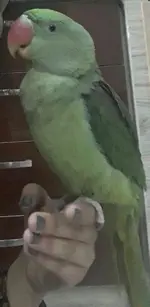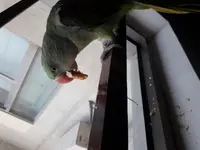Hello everyone!
Could you please help me figure if my Alexandrine is a male or a female? I am extremely curious and waiting until the ring appears requires a lot of patience :"D
I would have gone for a DNA Test but I come from a developing country and there aren't places in vicinity to go to.
Could you please help me figure if my Alexandrine is a male or a female? I am extremely curious and waiting until the ring appears requires a lot of patience :"D
I would have gone for a DNA Test but I come from a developing country and there aren't places in vicinity to go to.


